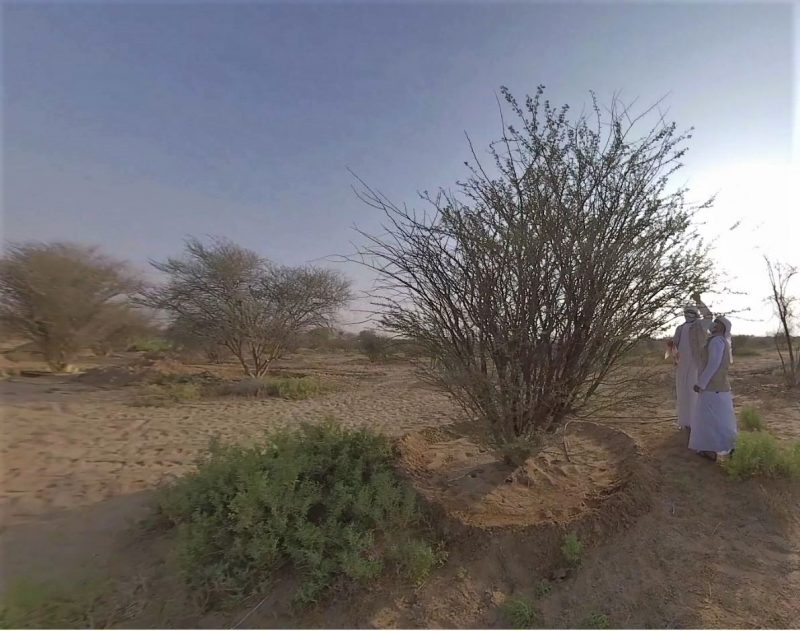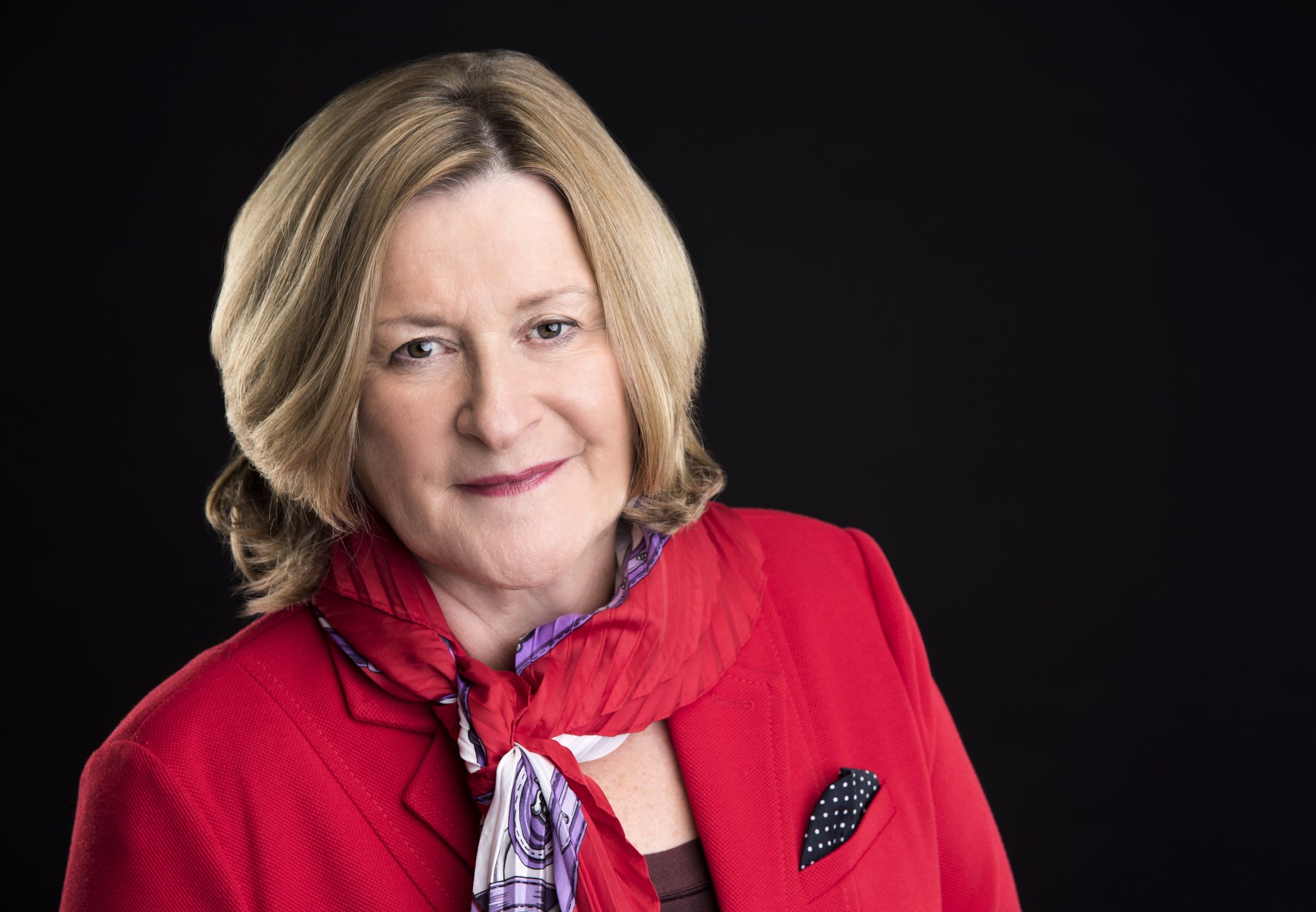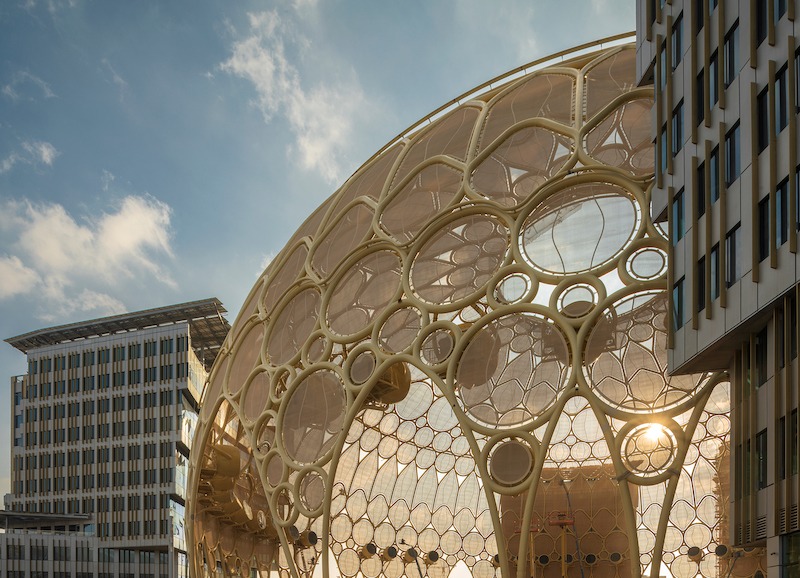EAD Rehabilitates Local Samar Blossoms
Green

September 15, 2020, 8:26 am
Abu Dhabi, 15 September 2020: The Environment Agency – Abu Dhabi (EAD) has successfully commenced a major rehabilitation project covering a total of 18 hectares in Jebel Hafit National Park by planting local Samar trees (Acacia tortilis) in areas which were environmentally degraded due to overgrazing, logging and expansions from previous infrastructure projects. The Agency planted a total of 7,500 saplings of Samar tree (Acacia) and 350 perennial trees, which were transplanted from areas less suitable for growth.
The project, which was launched in March 2020, will provide a number of environmental and economic benefits allied with the increase in green vegetation cover inhabited by Samar trees. This species is considered one of the most important tree species in UAE and – at the same time – is one of the most vulnerable due to threats due from human activities in the Emirate of Abu Dhabi.
Her Excellency Dr. Shaikha Salem Al Dhaheri, Secretary General of the Agency stressed the importance of this project, which comes as a response to the wise leadership’s guidance to increase the amount of green vegetation cover that helps to combat desertification. The project will help achieve a balanced local ecosystem, as the Samar trees are one of the main species that mitigate the effects of desertification. Additionally, this species is an important element in the mountainous ecosystem due to its high nutritional value for many animal species.
Her Excellency praised the government and EAD’s achievements. She said: “The Agency’s efforts to combat desertification was made possible by the support and the efforts exerted by the UAE to achieve Goal No. 15 of the Sustainable Development Goals. These objectives were set by the United Nations in protecting terrestrial ecosystems, managing forests sustainably, combating desertification, and reducing land degradation. Moreover, reversing the habitat’s course and stopping the loss of biological diversity, is in line with the target set by the UAE’s National Strategy to Combat Desertification 2014-2021.”
Her Excellency Dr. Al Dhaheri also added: “The UAE is considered one of the leading countries in the field of combating desertification, due to the strong commitments toward sustaining and enhancing vegetation cover and forest areas. Within the Zayed Network for Natural Reserves in the Emirate of Abu Dhabi, the government aims to increase the number of reserves and implement numerous projects and initiatives to plant trees, including palm trees, forest trees and fruit trees.”
Her Excellency referred to the project recently launched, adding: “The Agency has implemented many initiatives to rehabilitate natural habitats and enhance vegetation in the Emirate of Abu Dhabi. The scheme aimed at spreading more than one million seeds of local wild plants in natural habitats. The seeds include those from some very rare plant species such as: Ghaf, Acacia (Samar), White saxaul (Ghadha), Cornulaca (Al Hath), Bristle grass (Al Sabt), Convolvulus (Hab Al Risha), Broom bush (Al Markh), Wild drumstick ( Shu’a) and other species.
The initiative took place across 100 plots in a number of protected areas managed by the Agency, with the aim of supporting the seed stock in different types of soil across the Emirate.”
Ahmed Al-Hashemi, Acting Executive Director of EAD’s Terrestrial and Marine Biodiversity Sector, said: “This 18-month rehabilitation project in Jebel Hafit aims at planting 10,000 Samar trees by the end of the year 2020. The Agency implemented rehabilitation processes during specific times of the year to ensure the plants grow in appropriate weather conditions, which enhances the chances of success. Moreover, the seedlings and the mature trees are planted in a random manner to ensure the restoration of the natural shape of Jebel Hafit National Park Reserve.”
Al Hashemi emphasised that EAD will be executing the project over three stages. The first phase targeted to complete and ensure the site’s suitability for the rehabilitation by preparing the required earth work materials as well as conducting surveying activities. While the second phase included planting trees and local saplings in the areas identified by a team of young national technical experts involved in the project. The final phase comprises monitoring and following up on the growth of trees and their adaptation. Irrigation will be gradually reduced so that plants can grow independently after the completion of the project, to ensure its sustainability.
Samar trees, which are naturally found in mountainous areas with gravel soil and wadis, as well as the Jebel Hafit region, are among the most valuable local trees. This is due to their tolerance to drought conditions and high temperatures. It is worth mentioning that Samar trees have economic benefits as these trees have comparatively long flowering periods which is essential for honey production. Samar honey is extremely popular in local and international markets.
During the current year, some other endangered and rare wild plants have also been planted in wadis located in the Jebel Hafit National Park. Fifty-five seedings of the extremely rare Dwarf Palms, 30 Carullama and 30 Arabian Moringa plants have been planted. The agency will continue to maintain the plants until the end of the year, however, once they are fully established and have adapted to their environment, they will be left to flourish naturally with continuous monitoring from the EAD team. These rare species were propagated in the EAD nursery located in Al Dhafra region. This nursery specialises in the propagation and conservation of native flora and currently contains approximately more than 60 types of local wild plants.










